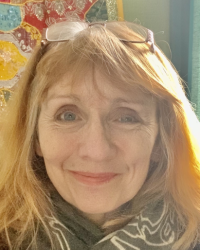A change of life
Becoming disabled can mean facing up to big changes in how a person feels about themselves, what their lives are all about, their relationships with other people, and with their bodies and sexuality.
If you find yourself facing the onset of disability, you may have questions such as:
- Am I still the same person I used to be?
- How can I get over not being able to do the things I could do before?
- How can I deal with the loss of my independence?
- Will anyone ever want a sexual relationship with me now that I’m disabled?
- How can I find happiness again?
- What can I do with my life now that this has happened?
When you become disabled, you may find that your body - or a part of your body - no longer does (and perhaps no longer looks) the same as it once did. You may have to learn how to be comfortable with yourself again and to be able to say with confidence - “This is me”.
On top of that, you might encounter responses from other people, including those closest to you, which can be hurtful or difficult to deal with: people may assume that you’ll never live independently, go to work, fall in love and have a family; you might feel that they treat you differently simply because of your disability. And you may be thinking those things about yourself too.
How we think about disability
Throughout history, disability and disabled people have frequently been portrayed as inferior, deserving of pity, as passive, dependent, unable to be a full part of society - in Nazi Germany, disabled people were amongst those killed in the concentration camps.
In recent times, these negative and distressing (to those on the receiving end) views have been challenged by disability rights activists who argue that the problems faced by disabled people are created as much by the barriers erected by society as by the disabling illnesses or conditions themselves; in other words, the problem is not that a wheelchair-user can't walk up a flight of steps - the problem is that no-one thought to build a ramp or install a lift instead.
How it feels inside
Of course, this approach - called the 'social model' - doesn't really address the personal experience of disability - how we feel and what we think about ourselves as disabled people; when our bodies don't do what we want or expect, or we have pain or frustration at being limited in what we can do. And it doesn't help when other people make hurtful comments - even if it's unintentional.
How to move on with your life
We can’t directly change what other people think, but we can change our own thoughts, feelings and beliefs about ourselves and the situations we find ourselves in. We can’t cure physical ill-health or disability, but we can change the way we think and feel about our physical difficulties or limitations.
Becoming disabled can be life-changing in many ways, and it's important to give yourself time to adjust to the changes, not to expect too much of yourself at first, to acknowledge both what you are having to leave behind (your mobility, for example) and what you can take with you into the future (such as a good sense of humour).
Change and loss
When we have a big change in our lives - whether it's a joyful change or a sad one - it nearly always involves a loss at the same time. By acknowledging what we've lost as well as what we still have, we can begin to get a better perspective on life.

Find a therapist dealing with Disabilities
All therapists are verified professionals



